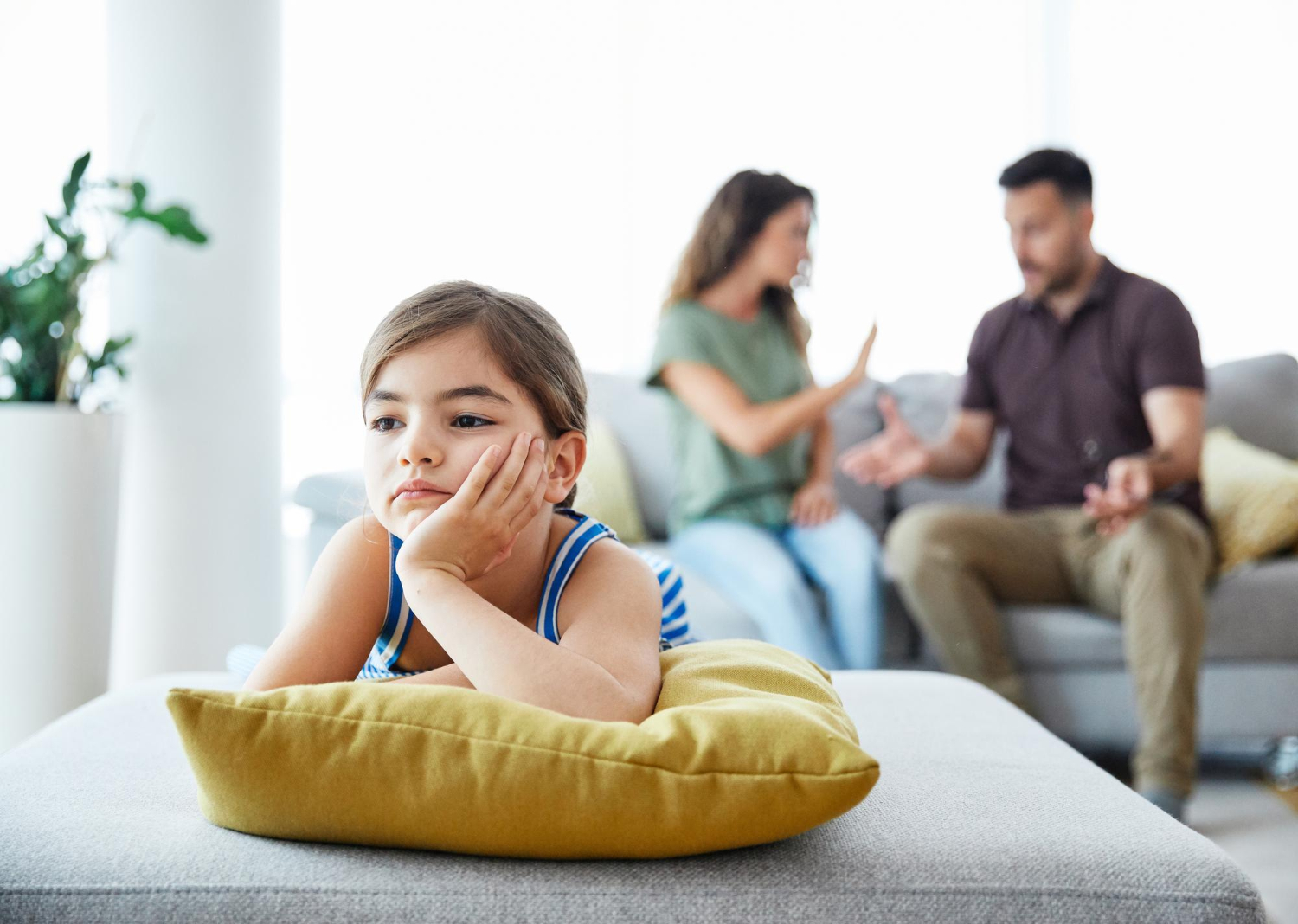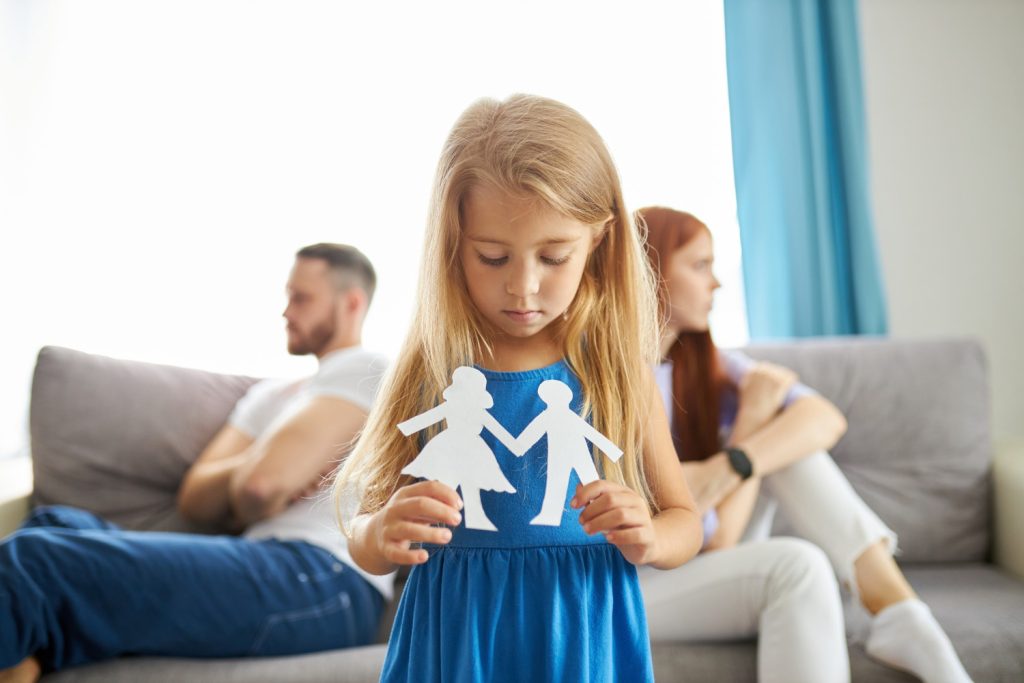Deciding to end a marriage is never easy, but talking to kids about divorce can be even more complicated. Regardless of their age, such news is likely to cause discomfort, anxiety, and frustration. However, their reaction greatly depends on how you present your decision. Therefore, when preparing for divorce with children, it is important to come up with a reasonable, age-appropriate explanation of what divorce means for your family and what will happen in the future.
In this article, you can find some suggestions on how to make divorce easier for a child, what things to consider when divorcing with a child, and how to provide them with the needed support after the marriage is officially dissolved.
Emphasize That the Divorce Is Not Their Fault
Often, children think they’ve done something wrong and caused such a decision when parents inform them about a divorce. Being in the grip of intense inner fault can negatively affect kids’ well-being and self-perception. So, before explaining a divorce to a child, a couple should develop a plan for running this conversation. Of course, every situation is different, but general recommendations for such a talk are:
- Reassure kids you love them. Divorce can be a traumatic experience for a child, especially if they associate it with the loss of love, connection, and family in general. When talking to kids about divorce, make sure to repeat that both parents love them and that love will never vanish. Though Mummy and Daddy won’t be married anymore, they will forever remain their parents.
- Always be honest. What to say when your child asks why you got divorced? You should say the truth but adapt it to your kids’ age. When touching upon the reasons, avoid blaming each other. Children deserve the truth, but it should be presented in a way that doesn’t overload them with adult problems.
- Encourage kids to ask questions. After you inform kids about an upcoming divorce, they may have many questions about future changes. For instance, they may ask: “Why do parents get divorced? Where will they live? How often will they see the other parent?” and more. It is necessary to spend some time with a partner before this conversation to predict possible questions and prepare solid answers. If a question finds you unprepared, you may say you don’t know the answer right now but will surely find a proper way out.
- Get ready for different emotions. Children may feel a huge range of emotions when parents tell them about a divorce. Your task is to explain to kids that confusion, anger, sadness, irritation, fear, loneliness, shame, frustration, etc., are OK in this situation. Support them regardless of the emotional fluctuations they are going through. If you think that parents’ involvement and assistance may be insufficient, don’t hesitate to contact child psychologists. Sometimes, kids need a third party to honestly talk about their worries and thoughts about why parents get divorced.
If soon-to-be-ex-spouses can’t prepare for a conversation on their own or feel they are emotionally unstable to talk to their kids, it is reasonable to have consultations with a psychotherapist. To provide your children with a secure and consistent environment in the during- and post-divorce life, you need to restore emotional balance yourself.
Age-Appropriate Communication
Children’s reaction to divorce by age is different, and it’s important to consider age specifics when preparing for a discussion.
How to Talk to 0 to 5-Year-Old Kids about Divorce
Children below 5 usually have less developed cognitive and emotional capabilities. They are just learning this world, so if you are curious about how to tell a 5-year-old about divorce, you should:
- Use simple language and explain the situation in short, clear sentences.
- Choose a quiet, comfortable space filled with familiar objects, such as a favorite toy or blanket, where you can talk without distractions or interruptions.
- Use clear examples to explain the changes. For instance, you may say, “Mommy and Daddy won’t be living in this house anymore, but you’ll still see Mommy on some days and Daddy on other days.
- Explain that their daily routines will stay as consistent as possible, such as meal times, bedtime, and activities they enjoy. Thus, you’ll be able to minimize the effects of divorce on a 3-year-old child.
How to Talk to 6 to 11-Year-Old Kids about Divorce
Children from 6 to 11 can better explain their emotions and feelings. Unfortunately, kids of this age usually relate a divorce to their misbehavior and feel guilty. When trying to figure out how to tell your 8-year-old about divorce, you can follow the recommendations below:
- Find a cozy place for the conversation where you can have their full attention. Avoid discussing divorce with young children during stressful times like school exams.
- Keep your explanations simple and to the point. You can say something like, “Mom and Dad have decided to live in different houses, but we both love you very much.”
- Emphasize that both parents love them.
- Encourage your child to express their feelings and concerns. Ask questions and listen actively to what they say.
- If there will be changes in living arrangements, use a visual calendar or chart to help your child understand the new routine.
How to Talk to 12 to 14-Year-Old Kids about Divorce
Teenage is often a turbulent period when your child is growing, building social connections, and learning about themselves and the world around them. Adolescents are more capable of understanding complex emotions and situations, but they still need reassurance and support during this difficult time. If you are hesitant about how to tell your teenager you are getting a divorce, you can use these guidelines:
- Start a conversation at home where a kid feels safe and can express all sorts of emotions.
- When telling teenagers about divorce, be ready that they may want more information about why it is happening. Share age-appropriate details without going into excessive personal or adult matters. Answer their questions honestly.
- Encourage your child to express their feelings and concerns. Be a good listener and validate their emotions.
- If there will be changes in living arrangements, involve your child in the discussion. Create a schedule that will be convenient for everyone.
Additional Considerations for Adult Children
How divorce affects adult children always depends on many factors. Though conversation with them will differ from that with young kids, it doesn’t mean you can do it without prior preparation. Make sure to:
- Choose a suitable time and place to speak privately without distractions. Respect their schedules and commitments.
- Be open and honest about the reasons for the divorce. Share your perspective, but also listen to their points of view. Be prepared to acknowledge their feelings, whether anger, sadness, confusion, or relief.
- Recognize that a divorce with adult children may affect family events, holidays, and other traditions. Address these concerns and collaborate on finding solutions.
- If they have their own families, consider how the divorce might affect them as parents or partners. Acknowledge the potential effects and offer support.

How Kids May React
Children can react to their parents’ splitting in various ways, depending on their age, personality, and the specific circumstances of a divorce. It is quite common for kids to feel upset or even guilty. Besides, they may be lonely or afraid of getting abandoned, so it is no wonder to find children sleeping in their parents’ bed after divorce.
A divorce can also make children feel insecure about their place in the world, their family, and their own identity. Sometimes, kids are ashamed that their parents are no longer together. In other cases, children may feel relieved and welcome the divorce if parents used to have regular conflicts.
As you can see, the number of points to consider is huge. Anyway, this transitional period is exhausting for all parties involved, and parents are responsible for helping kids through divorce.



